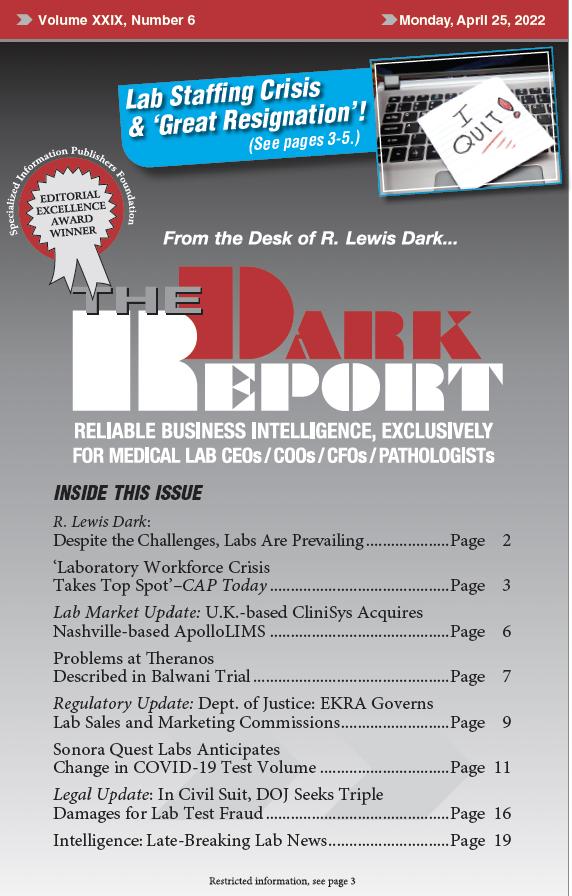CERTAIN CLINICAL LABORATORY EXECUTIVES AND LAB SALES PROFESSIONALS may soon be made to pay where it hurts most—in their wallets. The U.S. Department of Justice (DOJ) announced on April 4 that it had joined a civil complaint against 18 defendants, all of whom are alleged to have violated the False Claims Act, Anti-Kickback Statute, and …
In Civil Suit, DOJ Seeks Triple Damages for Lab Test Fraud Read More »
To access this post, you must purchase The Dark Report.


